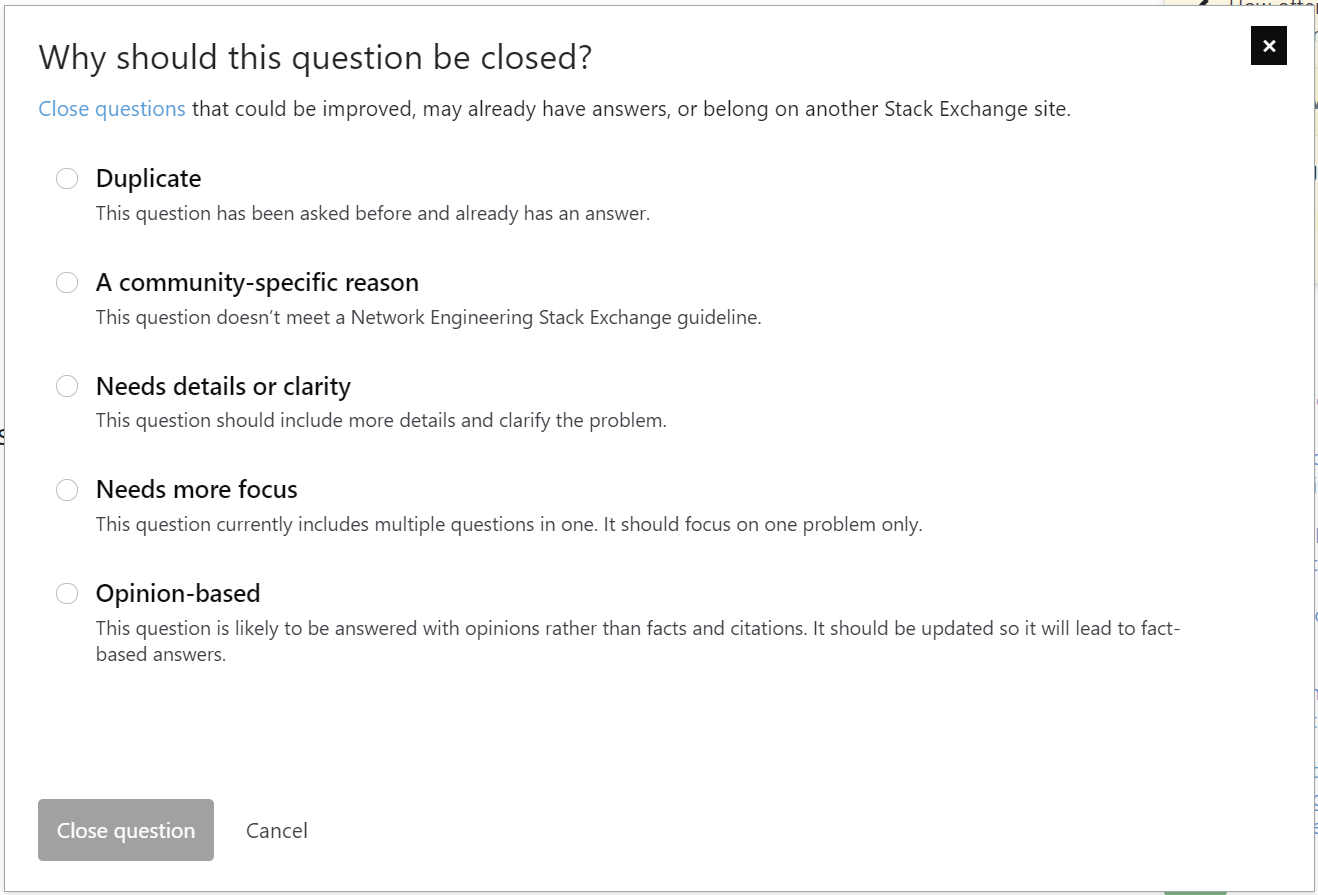First, this is about providing accurate close reasons for questions, that are most likely off-topic anyways. If you don't think it is relevant, you can ignore the rest of the text.
First thing some people think when heaaring this abbreviation is: RDT refers to real data transport. I don't know anything about it, besides that it is a protocol to transport multimedia. And as such, I would assume, that the one thing it does not do is any form of ARQ (i.e., acks, timeouts and retransmissions).
So far there were at least two questions closed, since "they refer to protocol above OSI layer 4 and are off-topic".
Now, this particular close reason is incorrect. The problem is that Kurose and Ross in their book, in their infinite wisdom™ decided to use the abbreviation RDT for reliable data transport, and use this term to refer to what I believe everyone else calls ARQ. Apparently there are RDT 1.0, 2.0, etc which refer to Stop-and-Wait, Alternate Bit Protocol, Go-Back-N, and so on. AFAIK Kurose and Ross's book is still recommended by almost all college networking course. So, people ask questions about ARQ and call them RDT.
Now, I don't quite get the policy about questions about ARQ. Homework is offtopic (so such questions are clearly out). However, design or theory of protocols used to operate a network is ontopic, and, understanding basic ARQs belong to theory of any reliable protocol operating either layer 2 or layer 4. On the other hand, since it is clearly basic building blocks theory, not protocols themeselves, redirecting such questions to e.g., Computer Science CE under tag [computer-networks] is probably a better option.
P.S. And also I would like to point out, that texts of both questions did mention basic ARQ mechanisms. So it absolutely obvious that the questions were about an ARQ mechanism and definitelly not about a multimedia transport protocol. So providing accurate close reason was no problem at all.

